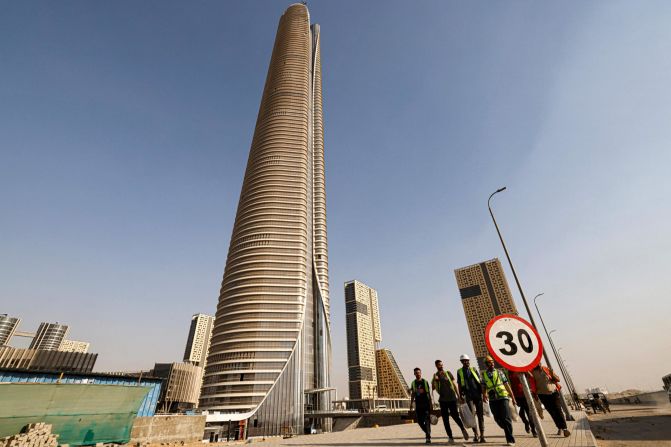
A new Egyptian capital – Egypt is building a new city, known as the "New Administrative Capital," 30 miles east of Cairo. Construction on the 270-square-mile area began in 2016, and once complete it could hold as many as 6.5 million residents. It is also home to Africa’s tallest building, the Iconic Tower (pictured). The government says its goal is to bring relief to overcrowded Cairo, but critics believe it is diverting resources from other needs. Across the African continent, innovative transport systems, telecoms operations and smart cities are being developed to boost economies and increase trade opportunities. Scroll through the gallery to see more.
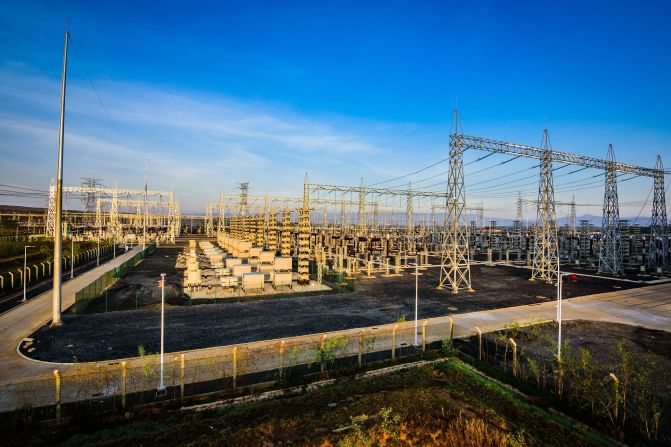
Ethiopia-Kenya Electricity Highway – The network comprises 650 miles of transmission lines that allow electricity to flow between Ethiopia and Kenya. It means that the two East African countries, which rely on renewable energy sources, have access to backup supplies from their neighbor.
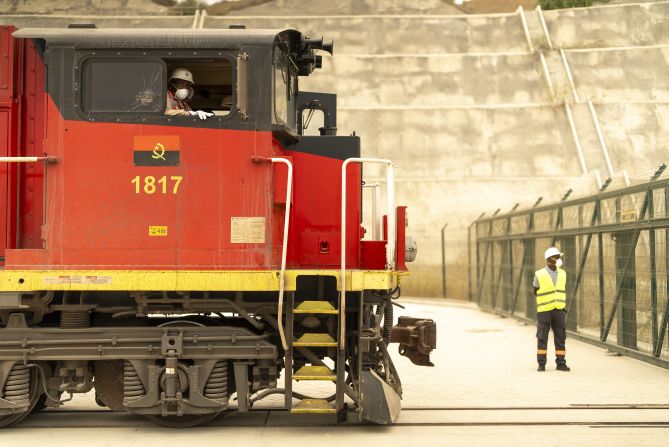
The Lobito Corridor – Backed by the US and Europe, the Lobito Atlantic Railway provides an efficient transport link from Africa’s mineral-rich interior to the port of Lobito, on the west coast of Angola. The railway is expected to speed up journey times for mineral exports, demand for which is quickly rising as they are considered critical for the energy transition. Feasibility studies are underway for a second, more ambitious phase of the project, which will expand the railway 800 kilometers (500 miles) to Zambia.
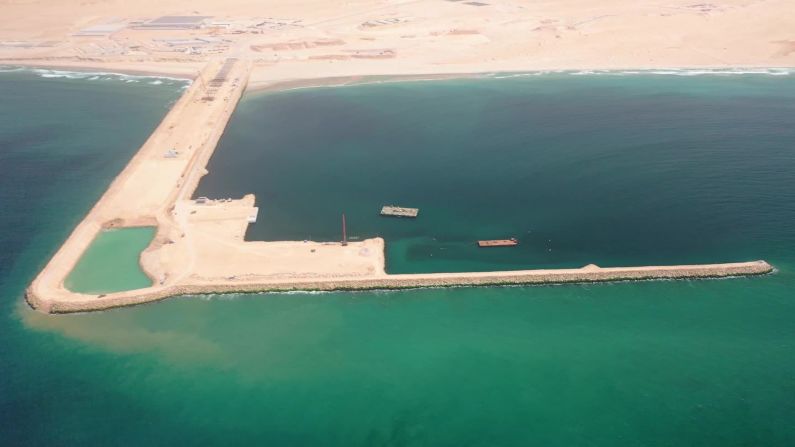
Dakhla Atlantic Port – Currently under construction, the new port located in the disputed territory of Western Sahara is expected to boost trade across West Africa. The $1.2 billion megaproject is due to complete in 2028 and will include a trade port, a fishing port and a shipyard. Once operational, it is expected to handle 35 million tons of goods a year.
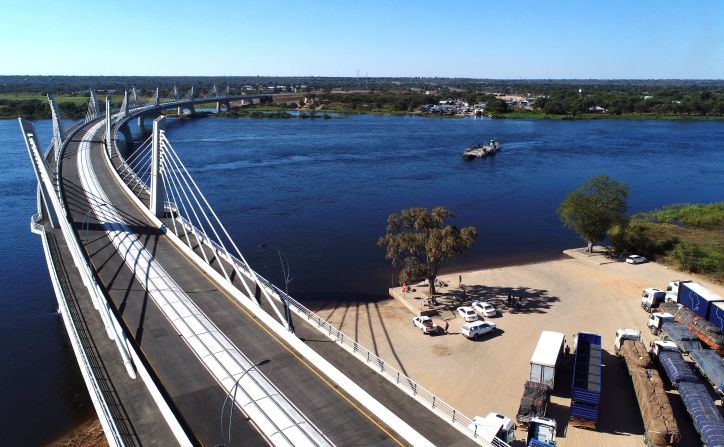
The Kazungula Bridge – The 923-meter-long bridge over the Zambezi River connects Botswana and Zambia. Opened in May 2021, it replaces a ferry and was built to speed up truck traffic along a key north-south trade artery.
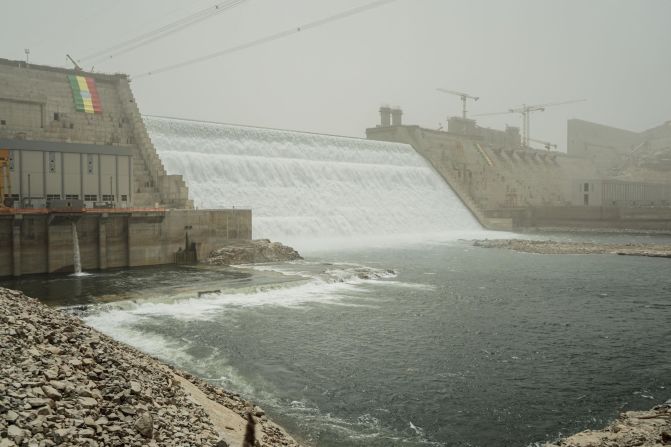
A $5 billion dam across the Nile – The ambitious Grand Ethiopian Renaissance Dam (GERD) is one of Africa's biggest infrastructure projects. Built on the Blue Nile River near Ethiopia's border with Sudan, the $5 billion dam will generate 6,000 megawatts of electricity annually. The project aims to turn Ethiopia into Africa's biggest hydroelectric exporter.
But the dam has been controversial from the get-go. The Blue Nile is one of two sources for the River Nile, providing 85% of the water that flows north through Sudan and Egypt, to the Mediterranean. Colonial-era agreements mean Egypt and Sudan, which rely on the river for their water supply, have maintained control over the river in the past -- but Ethiopia's dam threatens this. Years of negotiations between the three countries have so far proved unsuccessful. Ethiopia began generating electricity from the dam on February 20, 2022.
But the dam has been controversial from the get-go. The Blue Nile is one of two sources for the River Nile, providing 85% of the water that flows north through Sudan and Egypt, to the Mediterranean. Colonial-era agreements mean Egypt and Sudan, which rely on the river for their water supply, have maintained control over the river in the past -- but Ethiopia's dam threatens this. Years of negotiations between the three countries have so far proved unsuccessful. Ethiopia began generating electricity from the dam on February 20, 2022.

New refinery hopes to power up Nigeria – While Nigeria is one of Africa's most oil-rich countries, its refineries are only operating at a small fraction of their capacity. It's not just bad for the economy — fuel shortages mean Nigeria suffers frequent power cuts. But Africa's richest man, Aliko Dangote, has built an oil refinery covering 2,635 hectares, which he says will solve Nigeria's fuel problem. When fully operational, the Dangote Petroleum Refinery will be the largest in Africa, with capacity to process 650,000 barrels a day. In 2024, the refinery began production of diesel and aviation fuel.
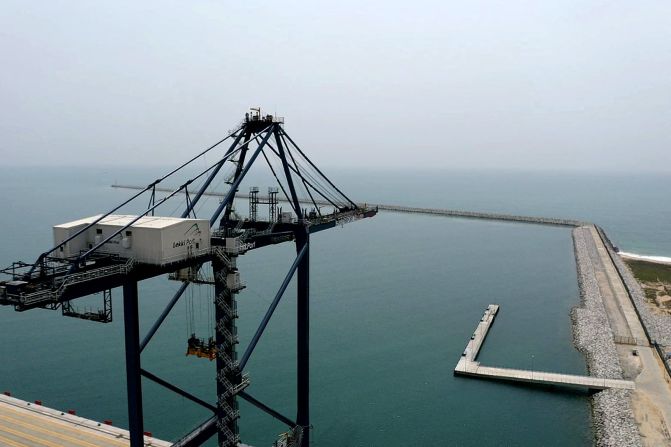
Lekki Deep Sea Port – Fully operational since April 2023, the Lekki Deep Sea Port in Lagos state, Nigeria, is the deepest port in the country and can support 2.7 million 20-foot containers (TEU) annually.

The Suez Canal expansion – Egypt's Suez Canal underwent an $8 billion expansion in 2015 to increase trading potential, and it has paid off, with a significant rise in revenue. Further developments to deepen and widen the southern stretch of the canal are underway, following the grounding of the Ever Given container ship in 2021 which blocked the canal for almost a week.
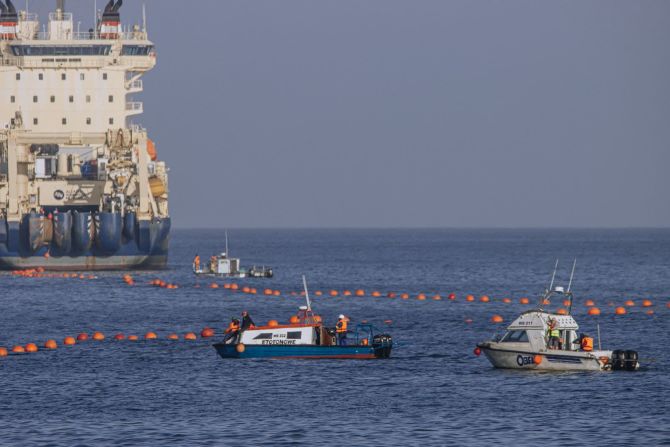
Supercharging western Africa's internet – Google Equiano, a subsea internet cable running from Portugal to South Africa, with 20 times the bandwidth of the previous cable serving the west coast of Africa, went live in 2023. It has the potential to increase internet speeds five-fold in some countries and reduce data costs, according to research commissioned by Google.
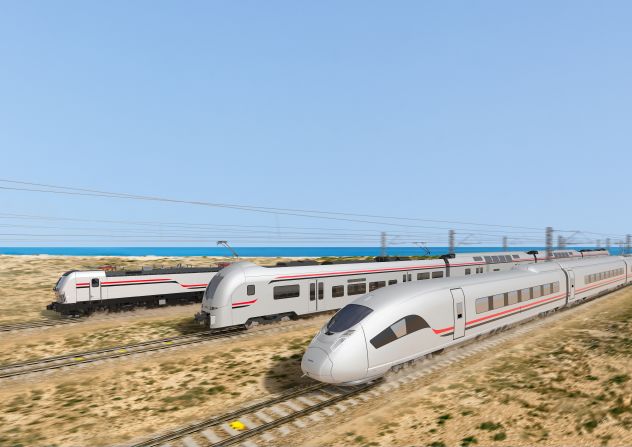
Egypt's plan for high-speed rail – Plans for Egypt's first high-speed rail are underway, with the finalized contract for the 2,000-kilometer (1,243-mile) rail system awarded to Siemens Mobility in 2022. When built, the railway will link 60 cities across the country. (Pictured: a rendering of future fleet carriages.)

Namibia reclaims 40 hectares for new port terminal – As Namibia's largest commercial port, Walvis Bay processes five million tons of cargo every year. A $300 million, five-year project has seen the port more than double its capacity for container units and reduce waiting times for ships. Its new container terminal, built on 40 hectares of reclaimed land, was announced to be fully operational in September 2020.



